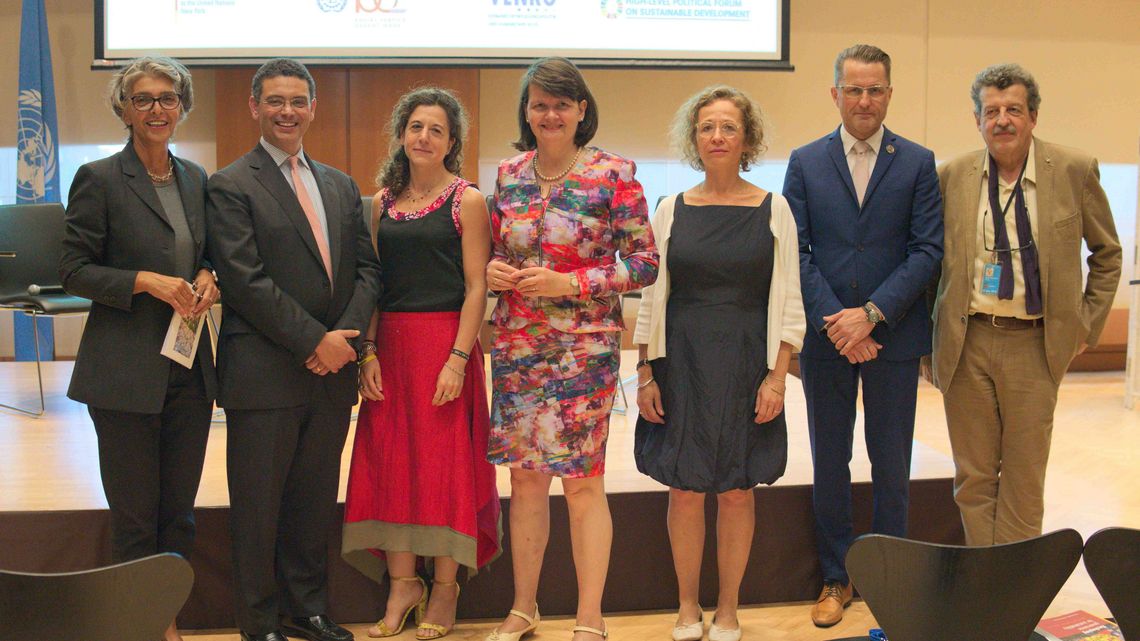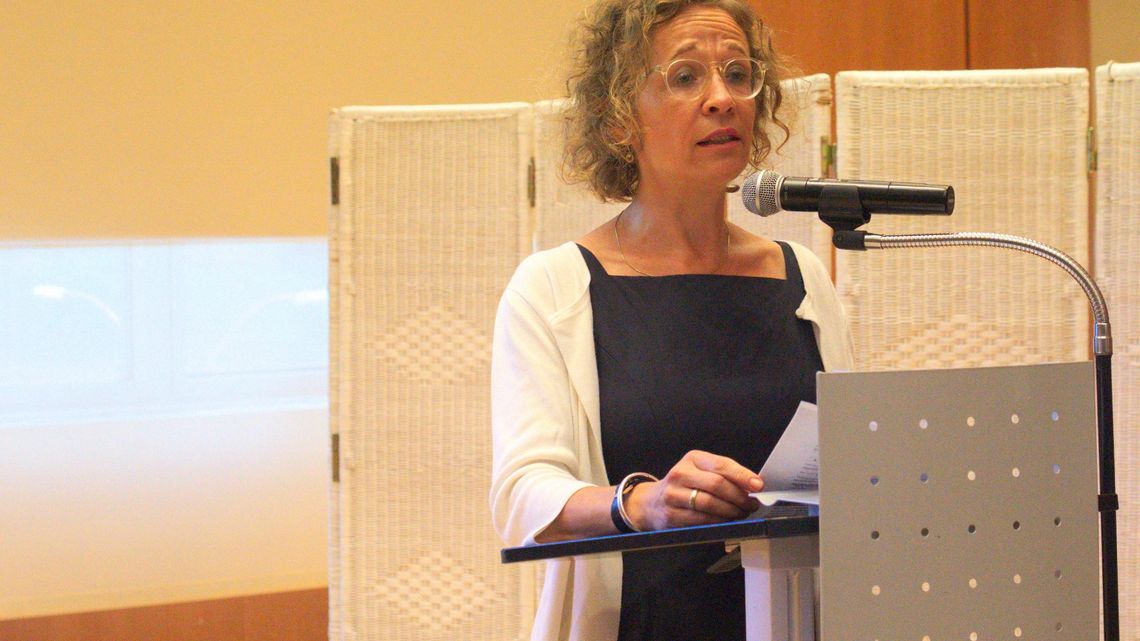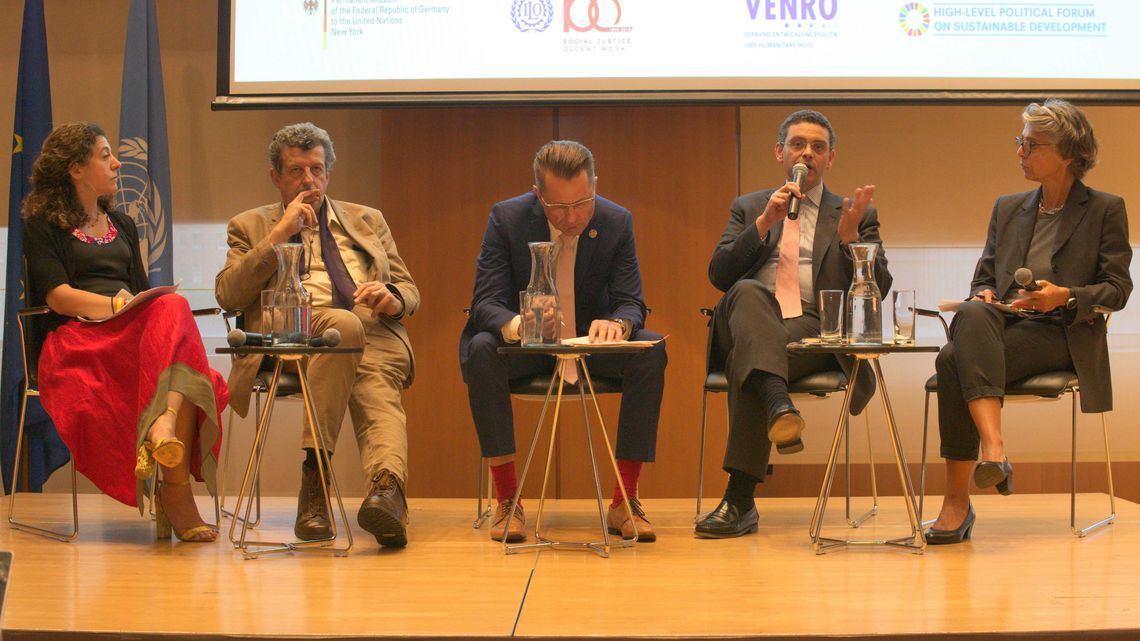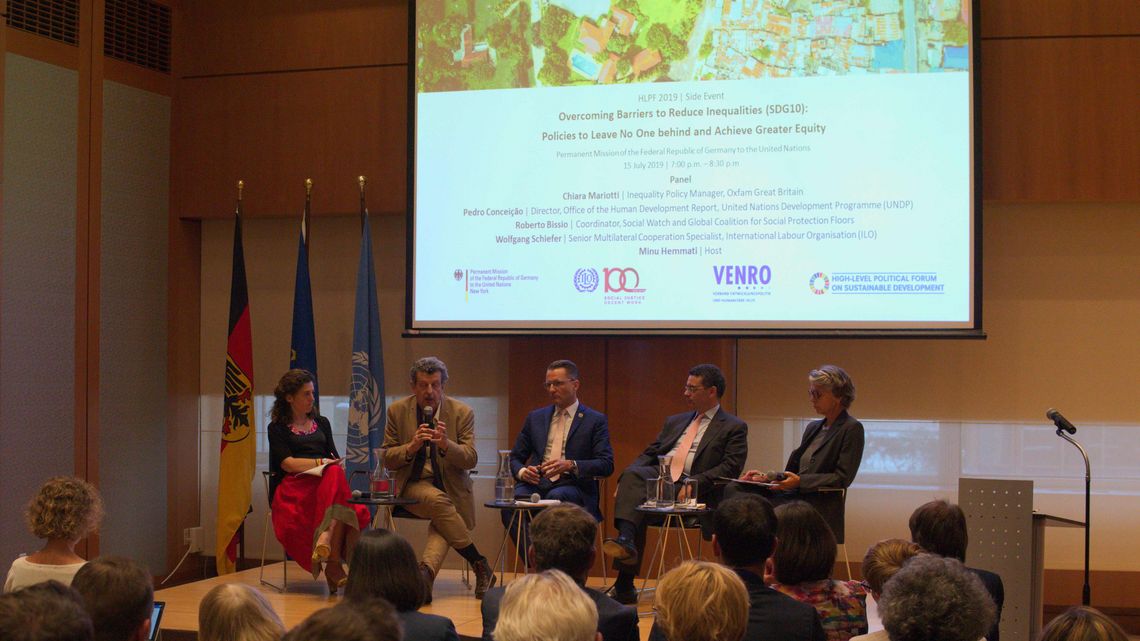Inequality and Human Rights
Inequality is something that shapes and defines one’s life. There are always people behind the numbers and percentages. One can clearly see the link of inequality, food insecurity (as we have heard today at the presentation of the SOFI report), health and poverty. Inequalities also exist in education, access to clean water and energy and many other dimensions.
All these dimensions are basic human rights and elementary to human dignity.
It is not only a question of income and wealth. Socio-economic inequality includes all these dimensions, which I have just mentioned, and many more.
Participation
One aspect I have not mentioned so far is participation. Participation in political life and decision-making. Now I have come to the point where I would like to talk about the relational aspect of inequality. “In-equality” means that I compare something, some aspect, some dimension.
With regard to political inequality, this means that some people have more power and influence than others do have.
Inequality and Power
Inequality is a dimension of social systems. Social systems are created and reproduced by actions of people.
I would like to ask the questions:
- Who is interested in stabilizing and perpetuating structures that lead to inequality?
- Who profits from it?
Some of those who profit may want try to influence decision-making processes to their favour. Not all of them, of course.
The point I want to make here is that people create inequality, not an anonymous system or a natural phenomenon.
During the last week here at the HLPF, I got the feeling that we really like nouns, nominalizations and passive constructions in sentences. But it is people who are responsible for inequality, not “systems”. People create systems. I have heard the expression “The world is changing and we have to change with it”. I would say: “We, in the first place, are those who change the world”.
Some Statistics on Inequality
Let me link this to the current statistics:
Income inequality continues to rise in many parts of the world, even as the bottom 40% of the population in many countries has experienced positive growth rates. Inequality is increasing because, an increasing share of income is going to the top 1 % of earners.
This means, the growing wealth and income inequality has been primarily driven by concentration at the top.
I think that one can fairly assume that there might be efforts of those at the very top to secure and perpetuate their positions through channels such as for example greater say in the political process or weakening regulatory measures aimed at curbing their economic power.
Perpetuating the status quo might also hinder the necessary transformation for achieving the Agenda 2030.
These social and economic structures, which are produced and reproduced by peoples’ actions, and which keep the trend of rising inequalities alive, are globally organized. What we need are corresponding political structures that prevent this trend, as the Agenda 2030 and anyhow the human rights system requires.
We perpetuate Inequality
Before the panel begins, let me add one more aspect:
It is easy to talk about others and label them “the rich”, “the poor”, “the disabled”, “the elderly” etc. What about us? Most of us sitting here also contribute to rising inequality:
Our way of living exploits people and resources.
If the whole world lived the way as for example people in the US or in many European countries, we would need three planets, and all renewable and natural resources available to humankind in a year, would be consumed by early May.
So where do these resources come from during the rest of the year? We simply use them by exploitation, by externalising the cost of our way of living and by using resources somewhere else, like land for growing our foods, water that we import through the trade of virtual water etc.
The Global Sustainable Development Report states:
“The most serious sustainability deficit for European welfare is its ecological debt, - caused by consumption and production patterns – impacts being externalized to other parts of the world.”
Not one country with a high social standard has achieved this within the planetary boundaries.
This means we need a transition away from patterns of economic growth, production and consumption that perpetuate deprivations, generate inequalities, over-use the global environmental commons and threaten irreversible damage.
We need Policies and Laws
I am not primarily referring to something like “behavioural change” or the individual responsibility, which is certainly important, but to policies. We need policies and laws that support ways of living that are globally sustainable.
This includes for example the promotion and support of agro-ecology and an environmentally and climate-friendly agriculture, the expansion of alternative energies, the development of public transports, fair international trade etc.
I think the majority of people do not want to live in an exploitative system.
I do not want to buy products that originate from slave labour.
I expect from politicians and decision makers that they make sure this is not the case, for example by introducing binding legal measures related to business and human rights. Politicians and decision makers should have the courage to use the instruments and laws they have and to develop new ones, which better fit the globalized economic system and its actors, than the existing ones.
If governments cooperate together with a real willingness and a true commitment to transformation, high inequality might become a story of the past.
Let’s now listen to the suggestions of our panellists!
Keynote by Luise Steinwachs, Deputy Chair, Association of German Development and Humanitarian Aid NGOs (VENRO), at a Side Event on Reduced Inequalities (SDG 10) at the HLPF - "Overcoming barriers to reduce inequalities: Policies to leave no one behind and achieve greater equality"
July 15, 2019, 7 p.m. – 8:30 p.m.
Permanent Mission of Germany to the United Nations | Auditorium










